New in SwiftUI bundled with Xcode 12 is the commands modifier, which allows us to declare key input with keyboardShortcut view modifier. You then need some way of forwarding the key inputs to your child views. Below is a solution using a Subject, but since it is not a reference type it cannot be passed using environmentObject - which is really what we wanna do, so I've made a small wrapper, conforming to ObservableObject and for conveninece Subject itself (forwarding via the subject).
Using some additional convenience sugar methods, I can just write like this:
.commands {
CommandMenu("Input") {
keyInput(.leftArrow)
keyInput(.rightArrow)
keyInput(.upArrow)
keyInput(.downArrow)
keyInput(.space)
}
}
And forward key inputs to all subviews like this:
.environmentObject(keyInputSubject)
And then a child view, here GameView can listen to the events with onReceive, like so:
struct GameView: View {
@EnvironmentObject private var keyInputSubjectWrapper: KeyInputSubjectWrapper
@StateObject var game: Game
var body: some View {
HStack {
board
info
}.onReceive(keyInputSubjectWrapper) {
game.keyInput($0)
}
}
}
The keyInput method used to declare the keys inside CommandMenu builder is just this:
private extension ItsRainingPolygonsApp {
func keyInput(_ key: KeyEquivalent, modifiers: EventModifiers = .none) -> some View {
keyboardShortcut(key, sender: keyInputSubject, modifiers: modifiers)
}
}

Full Code
extension KeyEquivalent: Equatable {
public static func == (lhs: Self, rhs: Self) -> Bool {
lhs.character == rhs.character
}
}
public typealias KeyInputSubject = PassthroughSubject<KeyEquivalent, Never>
public final class KeyInputSubjectWrapper: ObservableObject, Subject {
public func send(_ value: Output) {
objectWillChange.send(value)
}
public func send(completion: Subscribers.Completion<Failure>) {
objectWillChange.send(completion: completion)
}
public func send(subscription: Subscription) {
objectWillChange.send(subscription: subscription)
}
public typealias ObjectWillChangePublisher = KeyInputSubject
public let objectWillChange: ObjectWillChangePublisher
public init(subject: ObjectWillChangePublisher = .init()) {
objectWillChange = subject
}
}
// MARK: Publisher Conformance
public extension KeyInputSubjectWrapper {
typealias Output = KeyInputSubject.Output
typealias Failure = KeyInputSubject.Failure
func receive<S>(subscriber: S) where S : Subscriber, S.Failure == Failure, S.Input == Output {
objectWillChange.receive(subscriber: subscriber)
}
}
@main
struct ItsRainingPolygonsApp: App {
private let keyInputSubject = KeyInputSubjectWrapper()
var body: some Scene {
WindowGroup {
#if os(macOS)
ContentView()
.frame(idealWidth: .infinity, idealHeight: .infinity)
.onReceive(keyInputSubject) {
print("Key pressed: \($0)")
}
.environmentObject(keyInputSubject)
#else
ContentView()
#endif
}
.commands {
CommandMenu("Input") {
keyInput(.leftArrow)
keyInput(.rightArrow)
keyInput(.upArrow)
keyInput(.downArrow)
keyInput(.space)
}
}
}
}
private extension ItsRainingPolygonsApp {
func keyInput(_ key: KeyEquivalent, modifiers: EventModifiers = .none) -> some View {
keyboardShortcut(key, sender: keyInputSubject, modifiers: modifiers)
}
}
public func keyboardShortcut<Sender, Label>(
_ key: KeyEquivalent,
sender: Sender,
modifiers: EventModifiers = .none,
@ViewBuilder label: () -> Label
) -> some View where Label: View, Sender: Subject, Sender.Output == KeyEquivalent {
Button(action: { sender.send(key) }, label: label)
.keyboardShortcut(key, modifiers: modifiers)
}
public func keyboardShortcut<Sender>(
_ key: KeyEquivalent,
sender: Sender,
modifiers: EventModifiers = .none
) -> some View where Sender: Subject, Sender.Output == KeyEquivalent {
guard let nameFromKey = key.name else {
return AnyView(EmptyView())
}
return AnyView(keyboardShortcut(key, sender: sender, modifiers: modifiers) {
Text("\(nameFromKey)")
})
}
extension KeyEquivalent {
var lowerCaseName: String? {
switch self {
case .space: return "space"
case .clear: return "clear"
case .delete: return "delete"
case .deleteForward: return "delete forward"
case .downArrow: return "down arrow"
case .end: return "end"
case .escape: return "escape"
case .home: return "home"
case .leftArrow: return "left arrow"
case .pageDown: return "page down"
case .pageUp: return "page up"
case .return: return "return"
case .rightArrow: return "right arrow"
case .space: return "space"
case .tab: return "tab"
case .upArrow: return "up arrow"
default: return nil
}
}
var name: String? {
lowerCaseName?.capitalizingFirstLetter()
}
}
public extension EventModifiers {
static let none = Self()
}
extension String {
func capitalizingFirstLetter() -> String {
return prefix(1).uppercased() + self.lowercased().dropFirst()
}
mutating func capitalizeFirstLetter() {
self = self.capitalizingFirstLetter()
}
}
extension KeyEquivalent: CustomStringConvertible {
public var description: String {
name ?? "\(character)"
}
}

